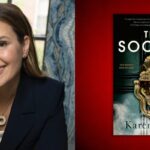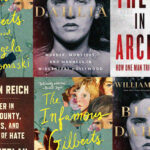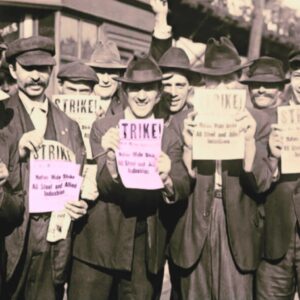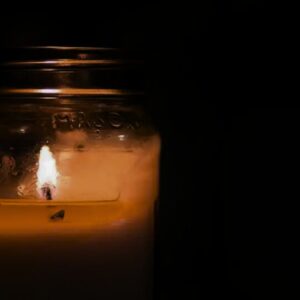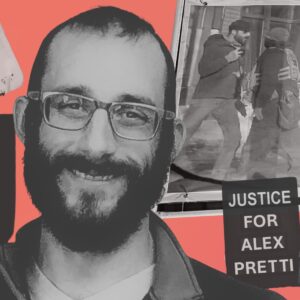
When the Best Possible Story is Right Outside Your Door
Nathan Deuel on (Trying) to Teach Travel Writing in the Middle of the UCLA Student Protests
It was supposed to be easy: Teaching travel writing. After all, I’d been teaching for more than a decade, with essays picked for Best American Travel Writing, a decently regarded book of essays about the Middle East, and even a New York Times Magazine piece about the time I walked from New York to New Orleans. I’d been to Yemen, had a favorite restaurant in Baghdad, and could tell you the best place to eat North Korean food in Riyadh.
But in ten years at UCLA, I had mostly been teaching outside my expertise—a composition class about Los Angeles, a creative writing class for pre-meds, and a general journalism course for English majors—and what a strange feeling it was to at last preach the genre I supposedly knew best. I was scared.
Sometimes you get what you want and it’s harder than what you didn’t. Then protests came to my campus—the same quarter I was teaching travel writing—and suddenly the most interesting story was located, in fact, about 100 feet from the classroom. Would I be able to get students excited about the idea of going somewhere? (I myself rarely went anywhere.) What would it feel like to teach about travel when the best advice I could give was to go nowhere and stand up for something?
*
I left Miami in 1997 to attend college in California and when I was 19 I hitchhiked to Alaska and worked on a fishing boat and then in a cannery and then I transferred to a college back east and almost immediately dropped out to work at a newspaper in Cambodia. There I met the woman I’d marry and we moved to Indonesia and started dabbling in Russia and the former Soviet Union.
In 2008 we moved to Saudi Arabia, two of the first American journalists to be based there. We had a child and my wife was offered an exciting job—in Baghdad. Plenty of families lived in that city of 10 million. Instead, the child and I moved to Istanbul and we’d all meet up in Kurdistan or Beirut, which we soon made home, just in time for some of the most dangerous and violent years of unrest in neighboring Syria.
Those years, my wife put on battle gear and snuck over the border while I changed diapers and wrote essays—about going to Sanaa with a tiny baby, who got German measles, probably from children in the old city who tried to share food. Or that time we rented a house on an island in Turkey but my wife kept fighting with her editor and the seagulls never stopped screaming. Or a Christmas in Kurdistan, featuring the most grim and insane Chinese food of my life. There were a lot of protests.
What a strange time to be teaching! What was my role here? Nothing felt right. Predictably, students started writing essays about what had transpired.
Then in 2013 we moved to Los Angeles and I tried to write more of what I guess you could call travel essays: About taking the bus to my book launch in Los Feliz and walking the length of the South Bay bike path and a trip to Joshua Tree to think about the legacy of Edward Abbey. Gradually, my desire to write this kind of essay dried up as my life became less mobile. Instead I raised a kid and learned how to surf and got good at teaching classes that had little to do with the person I’d once been and the places I’d once called home. I wrote about opera for The Paris Review and about parenting for The Los Angeles Times and I also reviewed a lot of books. I gradually became someone else, somewhere else.
*
Suddenly it was the spring of 2024, and I was entering a classroom in LA that I’d lectured from for years, except this time I came bearing the brand new syllabus for a class I’d written and designed and conjured into existence: English 131E: “Travel Writing.”
The plan was to read David Foster Wallace on the fair and the ship but also Agnes Callard’s essay about why travel sucks. We’d consider how queer African-American writers like Bryan Washington, obsessed with Japan, could reorient which stories we were telling and why and how Crying in H Mart was helping a new generation of young writers look in the mirror and care about their experience too. You could just go to the grocery store and write a beautiful essay. I could just walk into a room and try to teach students how to write about travel.
Then it was mid-way through the course. Not bad! Students had written half a dozen short essays, a midterm, and they were gearing up to take a “field trip” to write a much longer essay. One student was driving up to the Central Valley to find a songwriting community around the migrant experience. Another had trekked up a mountain in Utah, hoping to escape an ex-fiancee. A third was going to take Ubers at night and chat up garrulous drivers.
Here’s the deal: Sometimes the best story is standing right in front of you.
Then something pretty remarkable happened: A bunch of UCLA students (some of them my own) started gathering in giant numbers on the main quad. Walking past the encampment on that fateful Tuesday afternoon, I carried my satchel—stuffed with stories about adventures far and wide—and when I ran into a colleague I could barely hear him over the hovering helicopters. I took a final look before heading home, not knowing of course how bad it would get that night but sensing something foreboding.
Moodily, I stood there, listening to the murmur of teens and young people in their early 20s—not unlike gatherings I’d seen or knew about from my time in the Middle East—and my mind went dark, to the concussion of an explosion, bad guys with guns, the scream of sirens. It’s hard to care. It’s easy to get hurt.
Overnight, the worst things did happen. Well, not the worst, but it was astonishing to believe something so bad could happen right there, on my own campus. (The California Highway Patrol recently confirmed firing into the crowd nearly 60 projectiles, including “33 beanbag rounds from 12-gauge shotguns and two dozen 40-millimeter ‘direct impact’ rounds from pistols and shotguns,” a report said.)
That sad next day, and in the days to come, in the wake of a despicable and avoidable tragedy on its own campus, UCLA administrators sent a panicked official memorandum to the faculty. I monitored Twitter. I fielded emails from students, many of whom were shaken up. Then I got concerned emails from friends far away. Finally another note arrived from UCLA, this time telling us all classes were moving online indefinitely.
What a strange time to be teaching! What was my role here? Nothing felt right. Predictably, students started writing essays about what had transpired. Many of them were strident, predictable. I struggled to explain how to take this titanic event and turn it into a good story.
Then I got a good one. And in reading that student essay I realized something new that is actually maybe something basic—something I’d even baked into my own syllabus, even if I’d forgotten about it.
*
The very good piece started in Orange County, during an early morning grocery run with the student’s father, in the wake of the protests on campus and the arrests and the violence. The student of mine wasn’t speaking to her dad, she wrote, because he was still mad she had risked her life by joining the protest. She, meanwhile, was mad at her dad that he couldn’t see why she’d joined, and so she refused to talk to him.
They angrily stalked the aisles of an empty grocery store in a wealthy Los Angeles suburb, filling a cart, still not understanding each other. What would give? At the cashier, stonily putting stuff on the checkout counter, they startled when an employee noticed the student’s college sweatshirt.
“You go to UCLA, huh? I’ve been hearing about those riots all week. You weren’t at those protests, were you?”
Such tension! The student writes about looking at her dad, then at her sweatshirt, and then back at the cashier. “No,” she says innocently enough, “I wasn’t there. It’s all pretty scary, though.”
This was not true. She had been there. It was scary. But whereas all my other students tended to write at length about that awful night, and to emphasize the days leading up to it, and the days after, attempting to say so much, this student barely wrote at all about the suffocating feeling of being pushed, “White bodies to the frontlines,” or the bricks flying, or the taste of bear spray, or the cops firing weapons at her face, or how very scared she really was. (I mean she wrote about all that but with effective restraint.)
What stands out to me is how she wrote about lying to the cashier, the way she looked at her dad, who started to laugh and then she wrote about how she started to laugh herself.
On the way back to the car, she wrote, her life seemed to be opening back up.
*
It’s been a couple months now. I guess I knew part of me would enjoy standing in front of a bunch of 20-year-olds, telling them the action was in a faraway place. I knew my syllabus was designed to make that idea more complicated. But I also knew I hadn’t done much traveling myself lately.
It’s probably a good time to point out that this writer I’m so impressed with wasn’t even in my travel class. She’s a premed, taking the other class I taught this spring, which is called Medical Narratives, and is a kind of creative writing boot camp for future doctors.
Here’s the deal: Sometimes the best story is standing right in front of you. Sometimes it’s a future doctor with a light touch, sitting there in a classroom you’ve taken for granted. I guess what I’m saying is you can go to the grocery store, you can forgive your dad, and regardless of how hard or hopeless it seems, how much it might hurt, you can make just about anything in your life huge and beautiful and worthwhile.
Nathan Deuel
Nathan Deuel lives in Venice Beach and teaches at UCLA. He's the author of Friday Was the Bomb: Five Years in the Middle East.












